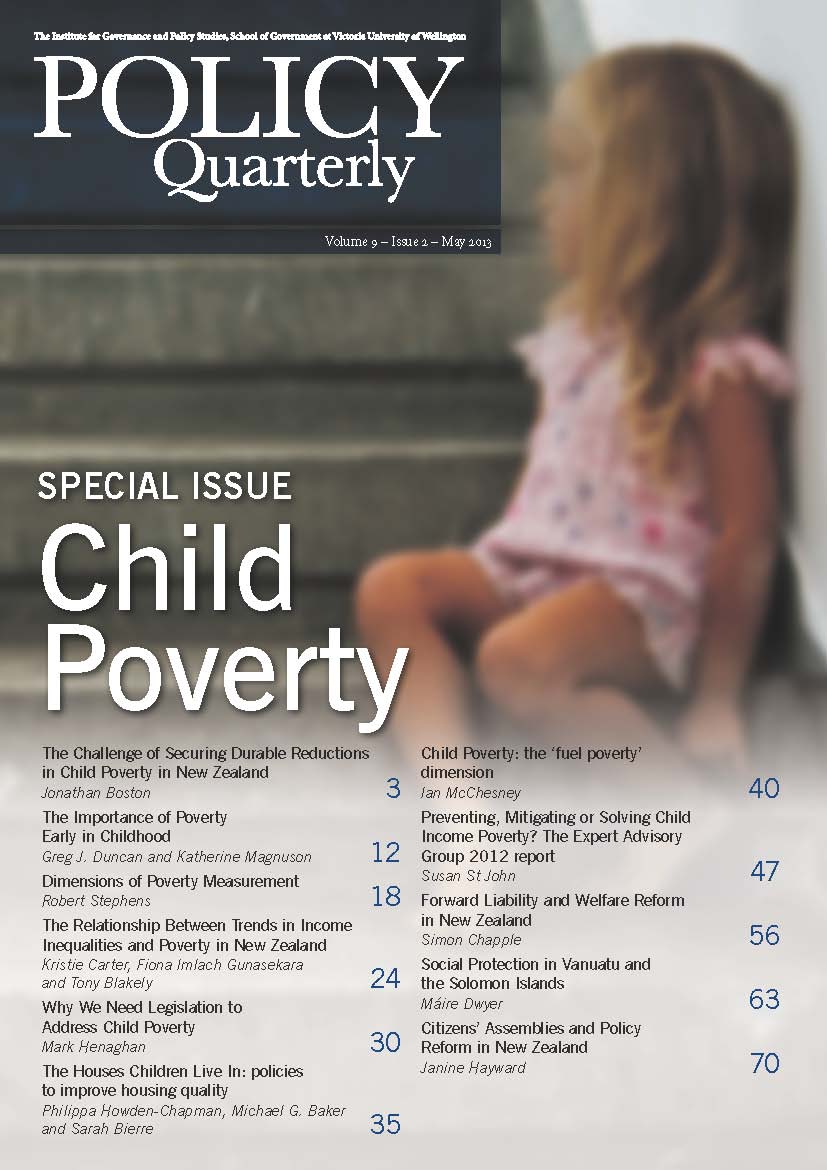The challenge of securing durable reductions in child poverty in New Zealand
DOI:
https://doi.org/10.26686/pq.v9i2.4452Keywords:
long-term costs, early childhood, lower educational achievement, reduced lifetime earnings, poorer health outcomes, wider social and economic costs, Expert Advisory Group on Solutions to Child Poverty (EAG), OECD, sole parenthood, Māori or Pasifika communitiesAbstract
New Zealand has tolerated significant levels of relative child poverty for more than two decades. For a country which once prided itself on being comparatively egalitarian and, more particularly, on being a great place to bring up children, this is surprising. It is also concerning. Child poverty imposes many long-term costs. This is especially the case, according to the available evidence, when poverty occurs during early childhood1 and when it is severe and/or persistent. These costs afflict not only the children directly exposed to poverty (e.g. in the form of lower educational achievement, reduced lifetime earnings and poorer health outcomes), but also society as a whole. The wider social and economic costs include increased health care costs, lower productivity growth and higher rates of criminal offending.2 In short, the empirical evidence suggests that substantial rates of child poverty reduce a nation’s prosperity. Hence, on economic grounds alone there is a case for seeking lower child poverty rates. Other considerations, such as the pursuit of fair opportunities for all children, make such a goal even more compelling.
Downloads
Downloads
Published
Issue
Section
License
Permission: In the interest of promoting debate and wider dissemination, the IGPS encourages use of all or part of the articles appearing in PQ, where there is no element of commercial gain. Appropriate acknowledgement of both author and source should be made in all cases. Please direct requests for permission to reprint articles from this publication to Policy-Quarterly@vuw.ac.nz.



